Check out these examples of key STEM skills and the kinds of amazing things they can help you achieve in the real world.
Research scientists focus on asking questions like, “How can we generate energy more efficiently?” They then create investigations to look at ways to improve how we create energy, and more. Power plant operators manage the operation of power plants by observing all of the aspects of the plant and then make adjustments to ensure everything is running smoothly, as well as to optimize energy use and generation. Plant technicians use observations about systems within the plant to ensure that all systems are operating efficiently and effectively. Technicians run tests or experiments to ensure that the systems are in working order and that any new components behave as expected.
Energy analysts use trends in data related to the energy use of consumers to predict how much energy we’ll need in the short-term and long-term future. Technicians in the field solve problems like power outages by analyzing the data presented to them by their tools, and then following a logical progression to identify issues and use the more effective method to fix them. Meter technicians take careful measurements from the wide variety of meters that measure every aspect of the power grid. They then collect, analyze, and respond to the data to ensure that every aspect of the grid is working effectively.
Network architects build the systems that allow information about when and how energy is needed to reach all parts of the energy grid. Information networks carry the data that analysts use to make assessments and that engineers need to improve our energy grid. Lineworkers, technicians, and others working out in the field use technology to pinpoint issues in the system and to make appropriate, effective repairs and improvements.
Engineers of all varieties, from those who specialize in field work or electricity generation, to those who design, build, and maintain power plants, all use the engineering design process to help them identify how to grow and improve our energy grid. Engineers, operators, and even researchers look at parts of our energy system and ask questions about how to make it more effective. They create and test new innovations that will change the way we distribute and use energy in the years to come. Operator mechanics use their engineering-based mechanical skills to understand and oversee areas of a plant or grid that they are charged with operating on a day-to-day basis. This allows them to solve problems related to their area quickly and effectively.
ABOUT US
Get Into Energy / Get Into STEM is a ground-breaking program designed to build awareness among students, parents, teachers, guidance counselors, and others about the value of STEM (Science, Technology, Engineering, and Mathematics) education and the excellent career opportunities available in the energy industry.
Get Into Energy / Get Into STEM is managed by the Center for Energy Workforce Development (CEWD), a non-profit consortium of electric, natural gas, and nuclear utilities and their associations.
CONTACT US
Email: staff@cewd.org
Phone: 202-638- 5802
Fax: 202-508- 5030
Address:
CEWD
701 Pennsylvania Ave. N.W.
3rd floor
Washington, DC 20004-2696
© 2024 Center for Energy Workforce Development. All Rights Reserved.
